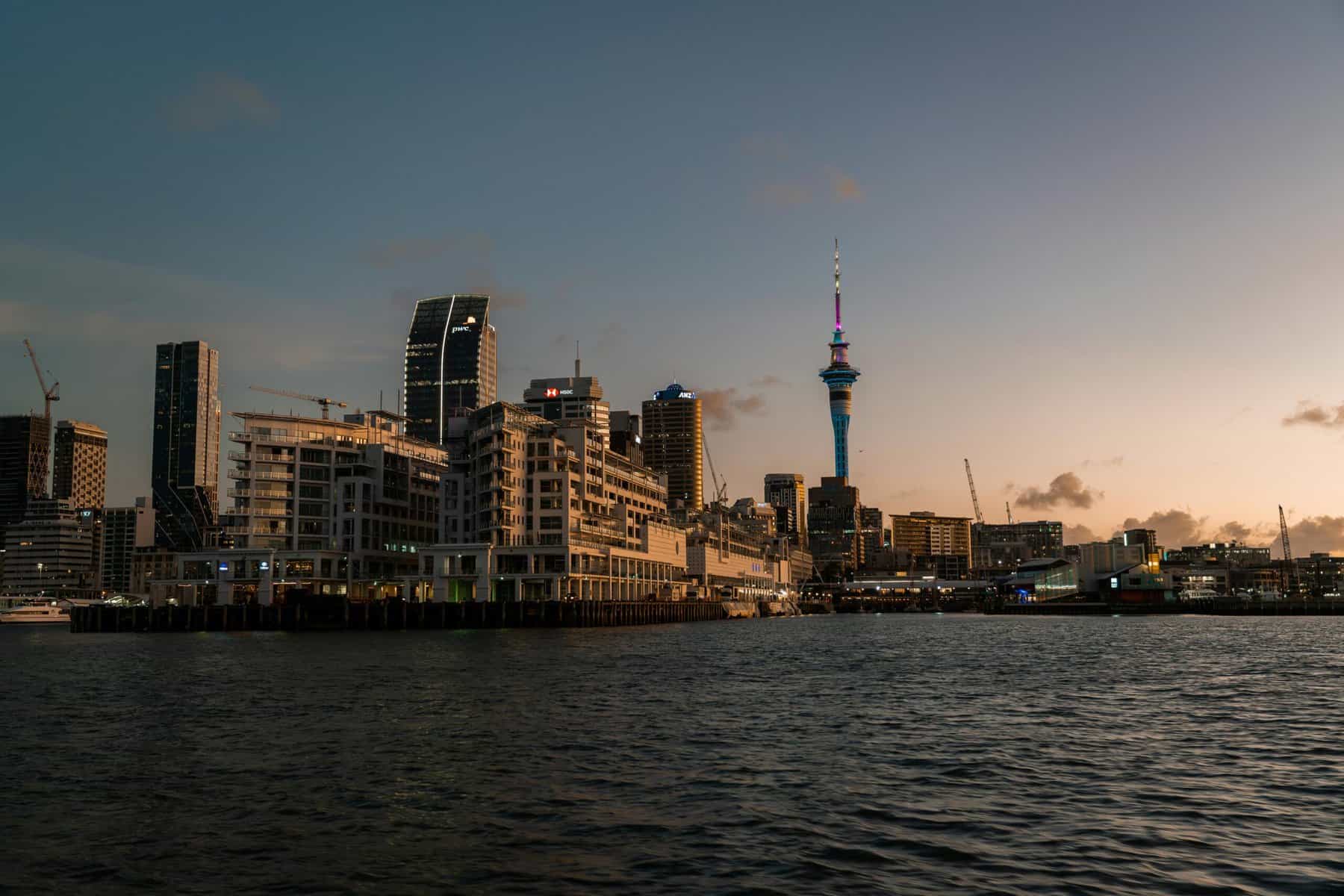Cooling the City: How the Refrigerated Container in Auckland Is Powering NZ’s Fresh Food and Pharma Supply Chains

Auckland stands as the beating heart of New Zealand’s economy, serving as a critical logistics hub for the entire nation. With its bustling port, international airport, and rapidly expanding urban population, the city has become a focal point for supply chain operations—especially in temperature-sensitive sectors. As demand intensifies for secure, agile, and scalable cold chain solutions, the refrigerated container in Auckland is emerging as one of the most reliable and adaptable tools to keep New Zealand’s supply chains running smoothly.
From keeping seafood fresh at the docks to maintaining the integrity of life-saving pharmaceuticals, refrigerated containers are proving indispensable. Their ability to deliver mobile, consistent, and compliant cold storage has made them a vital asset across industries. Here’s how the refrigerated container in Auckland is supporting everything from farm-to-table delivery to vaccine distribution.
Meeting the Surge in Fresh Food Demand Across the Supermarket Sector
New Zealanders value fresh, high-quality food, and nowhere is this more evident than in Auckland’s thriving supermarket sector. With a growing urban population and increasingly sophisticated consumer expectations, supermarkets must deliver peak-freshness produce, dairy, and meats every single day. Refrigerated containers are now playing a critical role in helping retailers manage seasonal supply fluctuations, overflow capacity, and last-mile distribution.
Many large chains are using refrigerated containers to set up satellite cold storage at suburban branches, especially during peak demand periods such as Christmas or long weekends. These mobile units allow stores to increase chilled and frozen inventory without costly infrastructure upgrades. Smaller grocers and independent food retailers are also adopting containers to keep perishable stock safe while responding to variable demand.
Supporting New Zealand’s Seafood Exports Through the Ports
New Zealand’s seafood industry is world-renowned, with Auckland serving as one of its key export gateways. From snapper and hoki to green-lipped mussels, freshness is paramount when shipping high-value seafood to global markets. The refrigerated container in Auckland is essential in this cold chain, offering onboard freezing or chilling from the moment the catch arrives at the dock.
At the Port of Auckland, these containers act as holding bays for temperature-sensitive shipments while awaiting customs clearance, vessel loading, or inland transport. The ability to maintain consistent temperatures during these crucial handover points ensures product integrity is preserved. For exporters, this reduces risk, meets international compliance requirements, and protects brand reputation in competitive overseas markets such as Japan, China, and the US.
Ensuring Temperature Control in Pharma and Medical Logistics
The pharmaceutical sector has some of the most stringent temperature control requirements of any industry. Vaccines, biologics, and temperature-sensitive drugs often require conditions between 2°C and 8°C—or even colder. Auckland, as a hub for medical distribution throughout New Zealand and the Pacific, relies heavily on refrigerated containers to maintain the integrity of these critical goods.
Hospitals, clinics, and medical research organizations are using refrigerated containers to provide temporary cold storage during infrastructure upgrades, or as emergency overflow during health crises. During the Covid-19 vaccine rollout, containers helped bridge storage gaps and enabled safe distribution to remote areas. These same solutions are now being applied to routine immunization programs, clinical trial shipments, and biotech manufacturing operations.
Bridging Gaps in Rural and Regional Supply Chains
While Auckland is the epicenter of New Zealand’s commercial activity, much of the country’s food production happens in rural areas. Ensuring these goods reach urban markets in peak condition requires strategic cold chain infrastructure. Refrigerated containers serve as mobile storage hubs that can be deployed along the supply route, from farm gates to distribution centers.
In the dairy and meat industries, these containers are used at rural depots and co-operative facilities, where products are cooled immediately after processing and held until ready for transport. This early intervention in the cold chain extends shelf life, reduces spoilage, and improves quality.
Supporting E-Commerce and Meal Delivery Logistics
The explosion of e-commerce has dramatically shifted how Aucklanders purchase and receive food. Online grocery orders, meal kits, and specialty food boxes now require precise coordination to ensure freshness upon delivery. This has created a new demand for agile, small-footprint cold storage solutions that can support micro-fulfillment centers, pop-up kitchens, and home delivery fleets.
Refrigerated containers are being adopted by food tech startups, delivery platforms, and even large supermarket brands to manage chilled inventory closer to the end consumer. By placing containers near key suburbs or distribution hubs, businesses reduce the time goods spend in transit—ensuring better customer satisfaction and compliance with food safety regulations. These decentralized solutions also help scale operations quickly without committing to long-term infrastructure costs.
Providing Flexible Solutions for Event and Festival Catering
Auckland’s rich cultural and events calendar—from music festivals to international sports fixtures—presents unique challenges for food vendors and caterers. Temporary, high-capacity cold storage is often needed at event venues where no fixed facilities exist. Refrigerated containers have become the go-to option for these short-term but mission-critical demands.
These containers are used to store prepared meals, beverages, desserts, and ingredients in compliance with health and safety standards, even in remote or unconventional locations. Their lockable, weatherproof design ensures security, while easy access and consistent temperatures enable smooth service during large-scale events. For event organizers, hiring refrigerated containers is a cost-effective and stress-free way to meet storage requirements while focusing on attendee experience.
Improving Sustainability in Cold Chain Logistics
Environmental responsibility is an increasingly important consideration for Auckland businesses—and cold storage is no exception. Refrigerated containers today are far more energy-efficient than previous generations, with better insulation, lower-emission refrigerants, and smart energy management systems. Some are even compatible with solar-powered operations or energy recovery systems, aligning with Auckland’s goals for sustainability.
By enabling localized cold storage, containers also reduce the carbon footprint associated with long-distance refrigerated transport. Holding perishable items close to their point of sale or processing cuts down on fuel usage and emissions. Moreover, the modular, hire-based model of refrigerated containers means businesses only use what they need, when they need it—minimizing waste and maximizing operational efficiency.
Offering Emergency Backup for Infrastructure and Utility Failures
Unexpected disruptions such as power outages, equipment failures, or natural disasters can cripple cold chain operations. Refrigerated containers in Auckland are increasingly used as emergency backups to ensure continuity during these high-risk moments. Businesses can hire or deploy pre-prepared units to protect valuable stock when internal systems are compromised.
For supermarkets, this means avoiding the loss of hundreds of thousands of dollars in chilled and frozen goods. For pharmaceutical distributors, it could mean the difference between saving or wasting critical medications. Having standby or rapidly deployable refrigerated containers allows Auckland’s supply chain to remain resilient, even in the face of major disruptions.
Conclusion: The Cold Chain Backbone of a Fast-Growing City
The refrigerated container in Auckland is no longer a niche utility reserved for ports or large-scale logistics companies. It has become a strategic enabler across industries—empowering supermarkets to deliver fresh food, helping health providers store life-saving medications, and giving small businesses the infrastructure they need to scale.
As Auckland continues to expand its influence in the Asia-Pacific region, these mobile, intelligent cold storage units will be at the heart of the city’s cold chain innovation. They offer flexibility, sustainability, and reliability in a compact, powerful package—keeping goods cold and supply chains moving, no matter how complex the demands of the future may be.






